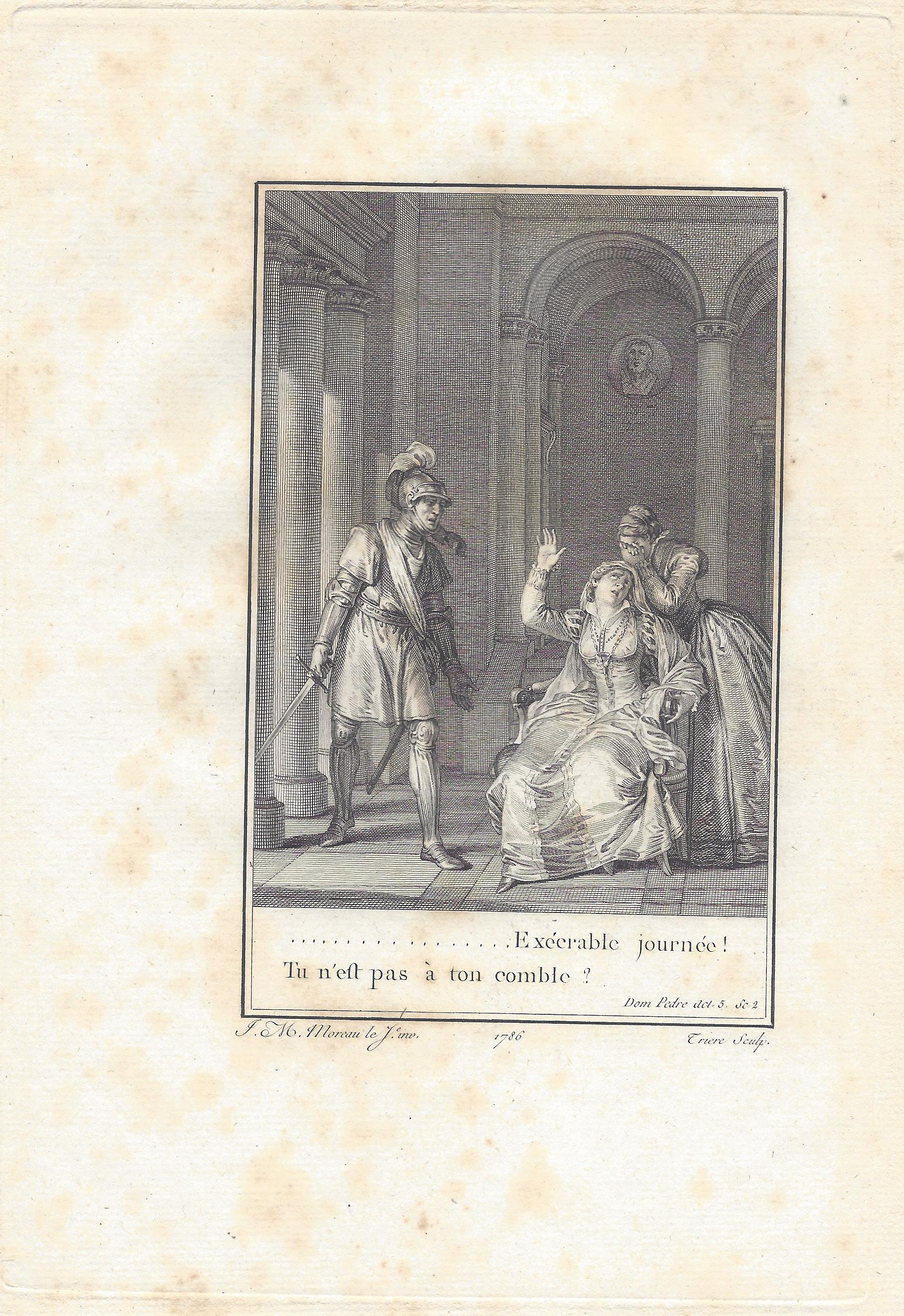Don Pèdre, Roi De Castille on:
[Wikipedia]
[Google]
[Amazon]
 ''Don Pèdre, roi de Castille'' (''Don Pedro, King of Castille'') is a tragedy in five acts by
''Don Pèdre, roi de Castille'' (''Don Pedro, King of Castille'') is a tragedy in five acts by
''Don Pedre, roi de Castille, tragédie. Et autres pieces'', 1775Literature on ''Don Pèdre, roi de Castille'', Société des Etudes Voltairiennes
Plays by Voltaire Tragedy plays 1775 in France
 ''Don Pèdre, roi de Castille'' (''Don Pedro, King of Castille'') is a tragedy in five acts by
''Don Pèdre, roi de Castille'' (''Don Pedro, King of Castille'') is a tragedy in five acts by Voltaire
François-Marie Arouet (; 21 November 169430 May 1778) was a French Age of Enlightenment, Enlightenment writer, historian, and philosopher. Known by his ''Pen name, nom de plume'' M. de Voltaire (; also ; ), he was famous for his wit, and his ...
. He began work on it in 1761 but only finished it in 1774. It was rejected by the Comédie-Française
The Comédie-Française () or Théâtre-Français () is one of the few state theatres in France. Founded in 1680, it is the oldest active theatre company in the world. Established as a French state-controlled entity in 1995, it is the only state ...
and published unperformed in 1775.
Action
The action takes place at the court of medieval Castille. Don Pèdre (Peter of Castile
Peter ( es, Pedro; 30 August 133423 March 1369), called the Cruel () or the Just (), was King of Castile and León from 1350 to 1369. Peter was the last ruler of the main branch of the House of Ivrea. He was excommunicated by Pope Urban V for ...
) faces claims from his half brother Transtamare (Henry II of Castile
Henry II (13 January 1334 – 29 May 1379), called Henry of Trastámara or the Fratricidal (''el Fratricida''), was the first King of Castile and León from the House of Trastámara. He became king in 1369 by defeating his half-brother Peter the ...
) both for the throne and for the hand of Léonore de la Cerda. With better connections and the support of the Church, Transtamare defeats Don Pèdre with the help of French soldiers led by Bertrand du Guesclin
Bertrand du Guesclin ( br, Beltram Gwesklin; 1320 – 13 July 1380), nicknamed "The Eagle of Brittany" or "The Black Dog of Brocéliande", was a Breton knight and an important military commander on the French side during the Hundred Years' W ...
. Transtamare murders Pèdre with his own hands and seizes the throne. Léonore chooses to die rather than endure marriage with him.Siegfried Detemple: Voltaire: Die Werke, Katalog zum 300. Geburtstag, Berlin, 1994, p.237ff
Background
Voltaire began working on the material for the play in 1761. As his campaigns against Church abuses gathered pace (under the slogan 'écrasez l’infâme’) he reworked it to place particular emphasis on the unhealthy influence of the religious authorities. Voltaire’s perspective on the characters was unusual; most previous writers had presented Transtamare as a hero and Don Pedro as his evil opponent; he reversed the usual roles.{{cite web , last1=Álvarez Rubio , first1=Ma del Rosario , title=De héroes y mitos de la historia de España: Pedro el Cruel en la literatura francesa (siglos XVII-XIX) , url=https://dialnet.unirioja.es/descarga/articulo/4047101.pdf , website=Dialnet.unirioja.es , accessdate=2 November 2018Publication
TheComédie-Française
The Comédie-Française () or Théâtre-Français () is one of the few state theatres in France. Founded in 1680, it is the oldest active theatre company in the world. Established as a French state-controlled entity in 1995, it is the only state ...
declined to put on the play, and it was not taken up by any other theatre. This rejection was not particularly to do with the play's critical attitude towards the Church, but more to do with the unsatisfactory and inconsistent characterisation. When the play was published, Voltaire added a dedicatory letter to d'Alembert
Jean-Baptiste le Rond d'Alembert (; ; 16 November 1717 – 29 October 1783) was a French mathematician, mechanician, physicist, philosopher, and music theorist. Until 1759 he was, together with Denis Diderot, a co-editor of the ''Encyclopédie ...
and a historical and critical discourse about the tragedy, as well as four short texts: ''Éloge historique de la raison'', ''De L'encyclopédie'', ''Dialoque de Pégase et du vieillard'' and ''La Tactique''.
References
External links
''Don Pedre, roi de Castille, tragédie. Et autres pieces'', 1775
Plays by Voltaire Tragedy plays 1775 in France